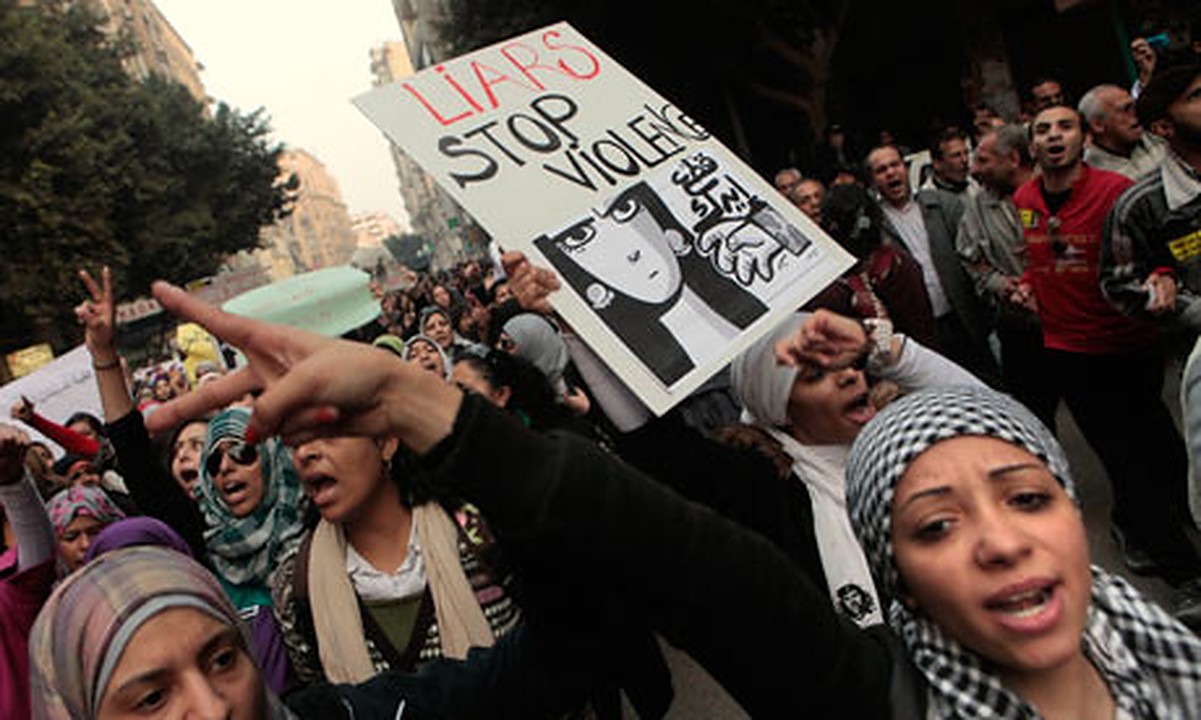“Searching for justice means ensuring that no woman or girl is left outside the umbrella of legal protection, and that the law serves as a framework of fairness with no gaps for impunity,” said Wafa Bani Mustafa, Jordan’s Minister of Social Development, at the launch of Equality Now’s regional report on rape legislation in Arab states on Tuesday, September 9.
The search for justice neither begins nor ends in the Arab world; it is a continuous journey of reform and change. One of the most significant milestones in this journey has been the repeal of the “marry your rapist” laws, once present in several Arab countries. In Jordan, the law was abolished in 2017 following major advocacy campaigns, with similar repeals taking place in Egypt, Tunisia, Lebanon, Kuwait, and Morocco. Yet, despite these legal victories, the practice still persists informally outside the legal system.
In other countries where it remains, the law allows rapists to avoid prosecution, or receive reduced sentences, by marrying their victims, effectively legalizing forced marriage under the guise of “restoring honor.”
To preserve her “honor,” a survivor is forced to relive her trauma, surrender her rights, and watch her rapist escape justice. But should honor override justice and humanity? Should family and societal honor weigh more than the rights of the victim?
And, above all, what does “honor” mean when a woman’s own sense of dignity and self-worth are no longer recognized or protected?
These questions were at the heart of the launch of the new regional report, which took place in Cairo and included the participation of Fadia Kiwan, Director General of the Arab Women Organization, Dima Dabbous, regional representative for Equality Now, and Egyptian lawyer Azza Soliman at the Centre for Egyptian Women’s Legal Assistance (CEWLA).
The report does not aim to evaluate the effectiveness or enforcement of rape legislation in Arab states. Instead, it begins at the foundation, examining how rape resists clear legal categorization, particularly as the concept of “honor” remains one of the most contested issues.
“The issue is not only about passing laws, nor about enforcing them, though enforcement is often the weakest link,” said Fadia Kiwan at the high-level event. “The real challenge lies in transforming social attitudes and mindsets to recognize women and girls as human beings.”
What Are the Gaps in the Law?
Does rape mean only the absence of consent? Does it require physical force? Or is it narrowly defined to involve just one body part?
A major gap in the legal frameworks of all Arab countries lies in the failure to fully define rape in a way that encompasses all cases. The definition is crucial, as it determines how a victim or survivor can report their case and seek justice.
For instance, in Algeria, Bahrain, Libya and other legal systems where rape is defined strictly as involving the use of force, the burden often falls on victims to provide physical evidence, such as bruises, to prove that the perpetrator used violence.
However, according to the Convention on the Elimination of All Forms of Discrimination against Women (CEDAW), adopted in 1979 by the UN General Assembly, rape should be defined on the basis of the absence of consent, rather than physical violence or resistance. The definition must include all forms of non-consensual penetration, regardless of the organ, body part, or instrument used, as well as the sex of either the perpetrator or the victim, or the relationship between them.
Yet no Arab country has a law that fully reflects this standard or recognizes the wide range of circumstances, such as exploitation of vulnerability, trust, influence, or dependence, that can invalidate consent.
“Even when there appears to be ‘consent,’ it may occur in a context of power imbalance, coercion, or manipulation. That is not genuine consent, and legally it cannot be considered consent,” said Dabbous at the event. “Courts must examine whether consent was truly given freely.”
Broadly, the report highlights three main problems: unclear definitions, exceptions built into those definitions, and laws that do not center on the concept of consent.
Firstly, in terms of terminology, the report found that rape is often classified under categories such as “acts contrary to decency” or “offenses against honor.” As a result, the crime is framed as an offense against morals, honor, or public order, rather than as a violation of the individual; an attack on the victim’s bodily integrity and sexual autonomy.
“One harmful consequence of such terminology is that, instead of being recognized as the victim of a heinous crime, the survivor is viewed as someone who has brought shame on her family or community,” Dabbous explained. “She is blamed, as if she were at fault, rather than acknowledged as a victim.”
A review of penal codes across the 22 Arab countries reveals a wide range of terms used to describe rape, including “intercourse without consent,” “sexual act,” “copulation,” “violation of chastity,” and “violation of decency.”
Such terminology, however, reflects cultural biases in how women’s roles are perceived, often prioritizing notions of honor and morality over the dignity and rights of the victim.
The definitions themselves are also highly restrictive, Dabbous notes. In many countries, such as Egypt, Bahrain, Morocco and others, rape is defined as a crime requiring a male perpetrator, a female victim, and vaginal penetration. Anything outside this scope is excluded from the legal definition of rape, often downgraded to “sexual assault” and carrying lighter penalties.
Tunisia was presented as an example of a more progressive approach, as rape is defined as “any act that leads to sexual penetration, regardless of its nature or the means used, against a female or a male, without consent.”
Egypt’s recognition of consent as central to the definition of rape marks progress compared to many jurisdictions in the region. Yet significant gaps remain in practice, as while consent should, in theory, be the defining factor, judicial interpretations often continue to prioritize physical evidence, the report notes.
Even in cases where rape is defined on the basis of consent, victims and survivors are often still required to undergo forensic testing. These tests are typically used to determine whether force was involved.
“It is almost impossible to refer a rape case to trial without a forensic report. And even if the prosecution were to send a case to court without one, the court would still demand it,” an anonymous Egyptian judge explained in the report.
Virginity testing, an invasive and scientifically discredited practice, continues to be carried out in some jurisdictions under the pretext of validating a survivor’s claims. Survivors are often pressured to assert their virginity to gain credibility, yet this can be turned against them if a medical report suggests otherwise.
“Even though virginity has no legal relevance, some victims feel compelled to claim it for respect, which can backfire legally,” an anonymous Egyptian lawyer noted in the report. “If there was no evidence of force or violence and the victim was not a virgin but claimed she was, the defense may argue the act was consensual.”
Another major gap is the absence of explicit recognition of marital rape. In some cases, courts dismiss complaints outright or downgrade them to minor assault. In Egypt, for instance, forced sexual intercourse within marriage has been classified not as rape but as harm, carrying only minimal penalties.
While the event did not specifically address cases of rape in conflict or war zones, or the wide range of violations committed against Palestinian women, men, girls, and boys across Palestine since October 2023, it did acknowledge the need to confront these realities and consider ways forward.
“Some Arab states have already shown leadership,” Kiwan noted. “Iraq, for example, began compensating Yazidi women survivors financially, later expanding the initiative to include other communities. This is a step in the right direction.”
How to Move Forward?
While defining rape is a prerequisite for closing gaps in the system, the process of implementing the law presents another set of challenges, involving many additional factors.
For Egyptian lawyer Azza Soliman, the challenge starts with ensuring that legislation is not treated as a symbolic gesture, but as a genuine step toward systemic change.
“Whenever governments feel pressure, they rush to draft laws for women. Women are used symbolically, as a quick fix. This is a major problem,” she said during the launch event.
The survivor and the victim must be at the center, embraced with solidarity and supported throughout the system, Soliman emphasized. “We lack a legal system trained to deal with us. Imagine a woman walking into a station, carrying her trauma on her shoulders, afraid even of being touched at the door. She needs to be treated with dignity.”
Another barrier, she noted, is that women often choose not to report assaults because they were at a party or out with friends, which are circumstances that, in Arab culture, are too often used as excuses to blame them.
“She brought it upon herself,” some people would say, pointing to her clothes or her behavior. “So, implementation is deeply tied to customs, traditions, and the very institutions responsible for enforcing the law,” Soliman added.
Another major challenge extends beyond the process of filing a complaint to the consequences and aftermath, specifically, how victims and survivors are treated within society, particularly in family-related cases.
Kuwaiti lawyer Athra Al Refai recounted during the event working on a case in which a girl was raped by her father. “We had to secretly record evidence to prove it. He was eventually sentenced to death. But the girl now lives in a shelter, because her family blames her for ‘destroying the family’ and refuses to take her back,” she said.
From reforming legal definitions of rape to focusing on prevention, training, and challenging harmful stereotypes, the event emphasized that, above all, open discussions and dialogue are essential to advance the conversation across the region.
“We see this as an opportunity to come together on a topic that, until very recently, few stakeholders, decision-makers, or experts were willing to discuss collectively,” Kiwan added.
“Before we talk about quotas, parliamentary seats, or improving access to the economy, society must first ensure women’s protection.”







Comments (0)